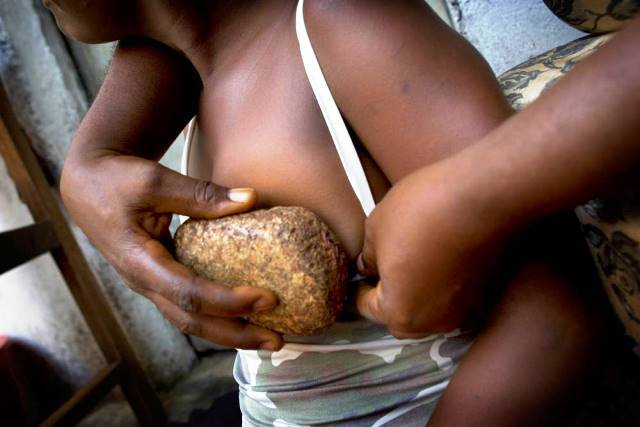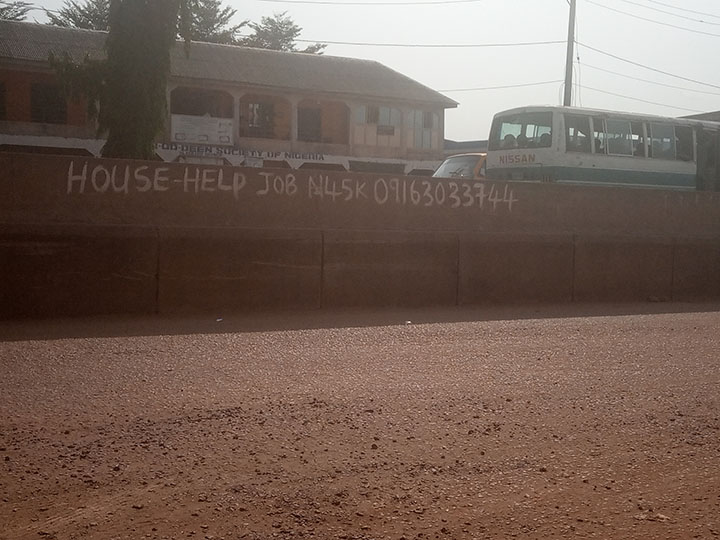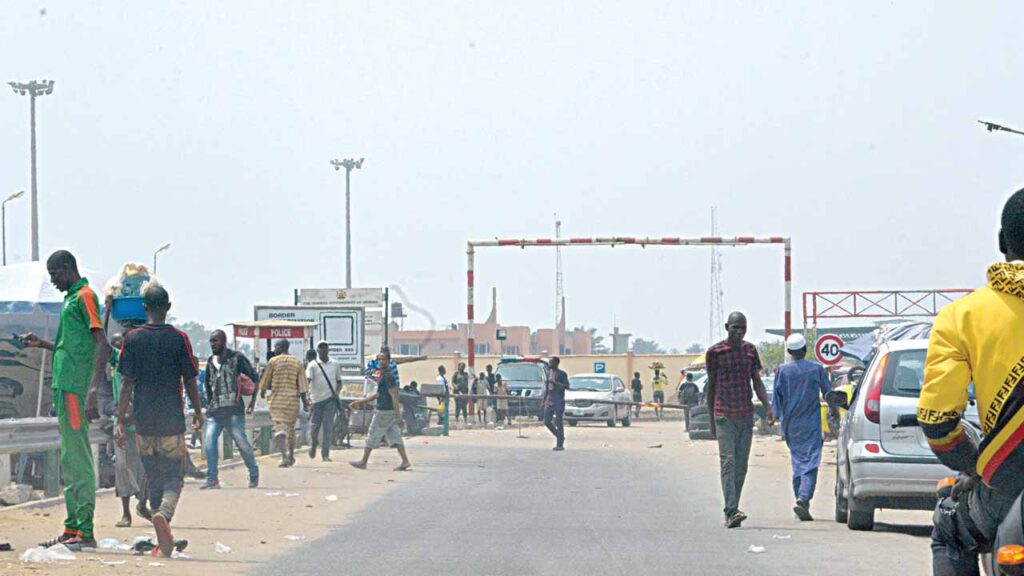
“In this state and, of course, the riverine state of Nigeria, we must resist it. We must stop it. Every one of us must rise up. The armed forces are not neutral. They collude with the armed bandits that kill people, kill Nigerians; they facilitate their movement; they cover them. If you are depending on the armed forces to stop the killings, you will all die one by one. The ethnic cleansing must stop in Taraba State; it must stop in all the other states of Nigeria. Otherwise, Somalia would be child’s play.
“I ask every one of you to be alert and defend your country, defend your territory, defend your state. You have nowhere else to go. Taraba is a miniature Nigeria with diverse ethnic and cultural heritage that the armed bandits are trying to bring to ruins. You must rise up to the challenge and resist that.”
These were the words of former Minister of Defence, General Theophilus Danjuma (rtd) on March 24, 2018. Widely perceived as a taciturn elder statesman, he doesn’t mind whose ox is gored whenever he chooses to bare his mind on national issues. As such, he seized the opportunity of the maiden convocation of the Taraba State University, where he was awarded an honorary Doctor of Science degree, to voice out his concerns on the spate of insecurity in the country and proffer the solution – resist the invaders or they will kill you.
Two years, 10 months and 20 days after he put forward that option, the country is still swimming in the ocean of insecurity. However, it seems Nigerians have keyed into the option given the diary of events in the last three weeks.
For instance, following series of killings and kidnappings in Igangan, Ibarapa North local council of Oyo State, one Sunday Adeyemo, aka Sunday Igboho, led some youths to the Sarkin Fulani of Oyo State, Alhaji Saliu Abdulkadir, to register their displeasure over the killings. He alleged that Fulani herdsmen were responsible for the rising insecurity and kidnapping in the area and thereafter issued a seven-day ultimatum to the herdsmen to leave or face eviction. Many observers had dismissed Igboho’s threat to evict the Fulani from the area, including the state Governor, Seyi Makinde, who in a statewide broadcast warned him and others stoking ethnic tension in the state to desist.
Nevertheless, on Friday, January 22, 2021, Igboho made good his threat. He stormed the community with hundreds of youths, leaving tales of wanton destruction, carnage and arson behind. This was evidenced in the burning of the residence of the Sarkin Fulani, many cars and the alleged killing of at least one person while some were said to be either seriously injured or missing.
“I’m in this struggle because I don’t want Fulani herdsmen and kidnappers to continue abducting our people. They should not be allowed to take over our land and grab our property and inheritance,” Adeyemo declared, adding that he would not retreat until Fulani herdsmen vacate the Yoruba land with Ogun as his next state of action.
Ten days after, he arrived Ogun, where he told journalists in an interview: “We are here in solidarity with our brothers and sisters. Fulani herders are killing us in various Southwest states, and that is why we, the youth, came out to demand our rights. That is why I am saying all Fulani herdsmen should vacate Yoruba land. There is peace now in Igangan and that is not the only place I want peace to reign. We are going to all Yoruba land. I appreciate Ogun governor; he loves his people and that is why we are in Ogun State today. We are going to Yewa now where Fulani kidnappers are terrorising Yorubas.”
Despite warnings by eminent Yoruba leaders that he should tread softly and allow necessary law enforcement agents to take charge, Igboho and his loyalists have reportedly taken their undertaking a notch higher. Presently, they are reportedly raising funds aimed at buying vehicles and ‘major equipment’ towards actualising their dream of securing Southwest states.
A similar scenario has been playing out in the Southeast, where the Indigenous People of Biafra (IPOB) launched the Eastern Security Network (ESN) on December 12, 2020, to protect residents in the five states of the zone. On Monday, January 25, this year, the security outfit clashed with the military in Okporo Orlu, Imo State. The incident reportedly left one person killed and five buildings razed.
The Garrison Commander, 34 Artillery Brigand, Obinze, Brig Gen. Yusuf Tukura, had explained that the clash resulted from the killing of security personnel by members of the security outfit.
“Why do you want to confirm from me? Did you confirm from them why they killed a policeman,” Tukura asked journalists who wanted to know the cause of the incident.
However, IPOB’s spokesman, Emma Powerful, had quickly debunked the allegation. In a statement, Powerful said: “ESN personnel are in the bush and forest chasing terrorists and herdsmen who are over there terrorising our members and sisters in their respective farms, not Nigeria security agencies. But they are looking for ESN’s trouble.
“Since the formation and inauguration of ESN by our great leader, Mazi Nnamdi Kanu, on December 12, 2020, they have been inside the bushes and forests; their job is to protect farmers from invaders who made pronouncements that all lands in Nigeria belong to them. Every time, Nigerian Army and the police would come and look for their trouble in the bush.”
Beside the activities of Igboho and the ESN, many unconventional security outfits now dot the Nigerian landscape. These include the Civilian Joint Task Force (CJTF) in the Northeast, which emerged first as a community effort, and later as a joint effort with the security forces to help fight Boko Haram. There is also the Western Nigeria Security Network (WNSN) code-named Operation Amotekun, a security outfit established in all the six states of the Southwest responsible for curbing insecurity in the region. Since Amotekun came into force, there have been moves by the South-south and Southeast governors cum political leaders to create a similar outfit. Cross River State, for example, has created the Homeland Security Service aka Operation Akpakwu to address its security needs. When other states will follow suit is a matter of time.
But what does the development point to? Is it an indication that Nigeria’s conventional security agencies have indeed lost their bite? Or Nigerians are now more comfortable policing themselves/being policed by familiar faces? If that is the case, what is the inherent danger in leaving citizens to resort to self-help to curb insecurity?
Executive Director of Civil Liberties Organisation (CLO), Ibuchukwu Ohabuenyi Ezike, told The Guardian that the security challenges Nigerians are facing today and the attempts being made at individual and community levels to fix them signposts nothing but failure on the part of government.
“Government has woefully failed in protecting lives and property of the Nigerian citizens which, in the first place, is the primary duty or objective of the government – welfare of the citizens and protection of their lives and property. So, because the government of Nigeria has failed, the people have no option than to resort to self-help to provide this essential service for themselves and families,” Ezike said.
He, however, warned that the situation could result in the proliferation of small arms and ammunition across the country, which might be difficult to control in the long run.
“The inherent danger is that there will be absolute lack of control measures on the movement or circulation of arms and ammunition in Nigeria. The result is that the society will turn into free for all with display of arms and threat to lives and property as has become the case. But we can’t blame the security agencies for total breakdown in security and protection of the people and their property.
“We blame mostly the government for its inability to properly direct the security agencies to do this critical service for the people, to provide enough resources for security agencies to run its affairs. This is a government that has failed to monitor the actions and activities of the security agencies to ensure that they play the game according to the rules; a government that allows certain categories of the citizenry to march the streets freely with dangerous arms and forbid the others from bearing even the least harmful objects. This creates uncertainties and breeds fears that cause the citizens to resort to self-help. It is a dangerous, disastrous and disappointing situation,” he lamented.
Public affairs analyst, Mr. Jide Ojo, also told The Guardian that Nigerians were resorting to self-help because “nature abhors vacuum.”
According to him, “when the state institutions of coercion – the Police, Nigeria Security and Civil Defence Corps (NSCDC), Department of State Services (DSS) and the military – are either negligent or complicit with the perpetrators of crime, the only resort is to self-help.”
He explained further: “Recall that under the law, homicide is not a crime when committed in self-defence. Self-defence is acceptable under our jurisprudence. And you don’t expect people to be continually raped, assaulted, molested and harassed and they will fold their hands. The first law of nature is survival; and whichever way you survive is left to your discretion.
“Let’s take it from the establishment of Amotekun last two years. When the southwest governors saw that the state institutions of coercion were negligent and not prompt in dealing with issues of insecurity, they had to come together and foster what is now known as South West Security Network, also better known as Amotekun. When Amotekun was initially established, you heard what the Attorney General and Minister of Justice said. He said it was illegal and unconstitutional. The governor of Ondo State had to meet with the vice president and they resolved that the governors conld make it legal by passing a law in their respective states to back up the establishment of the security outfit.
“Now, a similar outfit has been established in Cross River State; they call it Operation Akpakwu. There are attempts by IPOB to transform to Eastern Security Network. Recall the recent issue in Orlu, which led to a clash between the military and members of the outfit.
“You cited the CJTF. All these are children of necessity where people have to resort to self-help after state institutions failed severally in performing their constitutional role of ensuring the protection and safety of the citizens of this country.”
Ojo warned that if nothing urgent was done to improve security and discourage Nigerians from the growing inclination to self-help, there was great danger ahead.
He explained: “A great danger in the sense that when you allow institutions that are more or less tantamount to non-state actors to play the role of providing security without absolute and effective control, there is the likelihood of abuse; abuse of power and excesses on behalf of these non-state actors.
“Look at what Sunday Igboho did. They condemned him that he doesn’t have the right to give quit notice to anybody living in any part of Nigeria. But the guy was seen as a hero in Ibarapa area. And for your information, Ibarapa consists of seven towns. Herdsmen had allegedly kidnapped and murdered some very important personalities of these towns and there is police in that area. In fact, these herdsmen abducted the chairman of Igangan Local Council Development Area last year while he was on his way to Ibadan for a meeting with the governor. He reportedly paid a ransom of N5.5 million to regain his freedom. There is a police Area Command there and all of them were allegedly ineffective in dealing with the issue. Not until two days ago or thereabout did the new Commissioner of Police parade about nine or 10 suspects in respect of the abductions and murder in the area. So, it took the pressure from somebody like Sunday Igboho, who became an ethnic champion, for the police to be awakened to its responsibility and now they have rounded up about nine suspects. If they were this proficient and efficient when the criminals killed Dr. Fatai Akporode, when they abducted the son of the Oba of Igangan and others, a Sunday Igboho would not have emerged.”
On the implications, Ojo recalled what happened in Aba, Abia State and some other areas in the Southeast when Bakassi Boys were trusted to provide security for the people.
“It got to a point that the Bakassi Boys became so power drunk; they were being used to settle land disputes and collect debts that the borrower had refused to pay. They became a law unto themselves. And their excesses were well documented. That is why they were eventually banned.
“That is why there could be a backlash if Amotekun and all these operation this and that, that individual states are now championing are not well controlled. It is the spate of insecurity that has bred this resort to self-help but without effective control, there will be trouble.
“For instance, if the governors who set them up in the first place do not resource them very well and by this I mean if their salaries and allowances are not being paid as at when due, don’t you think that these people will go rogue? These are people who are already armed. They can become the renegades and the fifth columnists that will even become moles inside the vigilante group. As I told the governors of the Southwest at a forum, ‘if you fail to ensure that the Amotekun Corps is well-resourced, they will go rogue; they will become law unto themselves and their establishment will become counter productive.’”
Ojo emphasised that the Federal Government needed to set up a framework within which all the security outfits that are being established across the country would operate.
His word: “There should be a template for their operation. That is why we need state police. Let there be state police with clear constitutional mandate. The constitution is superior to any other law. Even the law setting up the Southwest Security Network is inferior to constitutional provisions. We need a constitutional amendment to spell out the parametres of operations. If there is a state police duly recognised by the constitution, the parametres for their existence, operations, procedures and processes will be well enunciated.
“In the U.S. you have the federal police, state police, and the sheriffs at the county level; different police formations. And they are regulated by the Constitution of the United States of America. That is the way to go.”
Ojo added: “I have said time and again that we do not have sufficient security personnel to govern this entity called Nigeria. I read something in the social media recently, which stated that Niger State is 76,000 square metres. That is almost the entire Southwest with the exception of Lagos. And that is one state in the North. So, we have a lot of ungoverned spaces. That is why we need more security personnel. That is also why I feel that the Federal Government would be deceiving itself if it thinks that the issue of security and defence should still be on the exclusive legislative list. I think it is high time we devolve power to the states. Let there be state police to complement the federal police. And the setting up of state police should be left to the discretion of the states that have the wherewithal. It shouldn’t be mandatory. If Borno State feels that the establishment of state police is a priority, let them go on. If Gombe State feels that it doesn’t need state police, it should be accepted. So, each state can be allowed to set up their policing system within the parametres of constitutional provisions.”
He stated that apart from creating state police to pave way for the recruitment of more personnel that would govern ungoverned spaces, the country needed to adopt the use technology in the fight against insecurity.
“If we deploy all-weather drones, drones that can see well during the day and night, during good and bad weather to our forests; if we deploy CCTV cameras, scanners, trackers and all manner of sophisticated security gadgets to our highways and forests to complement the security agents, it will make the fight against insecurity seamless. Do you have to cut down all the trees in the forest so that kidnappers will have nowhere to keep their victims? If you do that, it means that you are contributing to deforestation. So, we need those trees to exist. But you can put CCTV cameras in some of them.
“When I went to Yankari Game Reserves a couple of years ago, I discovered that it was unfenced. But anything that goes on there is monitored because they deployed CCTV cameras across the entire space. So, we can deploy technology to monitor the goings on in our forests to fight against insecurity in Nigeria and the cost should be shared by the three tiers of government.”
The Executive Director, Access To Justice, Joseph Otteh, on his part, submitted that even though the ethnic-leaning security outfits springing up all over the country are illegal and unconstitutional, they arose as a result of the decay and incompetence of the country’s internal security agents.
He explained that the situation has pushed many residents to rely more on themselves for security against criminals.
Otteh accused the present administration of making the peaceful coexistence of Nigerians almost impossible by its failure to adequately protect them from aggressors.
He said: “This government is pushing limits of our nationhood everyday and nobody should be surprised at what is happening. They have pushed the structures of our nationhood to its limit by the propagation of parochial, ethnic, unfair and unjust policies that favour one side of the country to the detriment of others. When these conditions are present, it is not difficult to predict that people like Sunday Igboho, Nnamdi Kanu and other tribal and ethnic nationalists would bubble to the top. They are a reaction of a lot of people’s pain, people that are angry about the constant pro-ethnic policies of this government towards one ethnic group. More people like Kanu and Igboho would still rise up to try and fight the attempt to subjugate one region against other regions.”
Otteh added: “This present government, by just being inequitable and refusing to rein in criminal bandits while allowing them unleash terror on Nigerians and control territories with so much impunity, has indirectly given these ethnic warlords the right to try and defend themselves by any means necessary. The security agencies seem helpless; Nigerians are angry and helpless about what is happening as they keep losing loved ones, farmlands and investments to terror and insecurity and you expect people not to support the likes of Igboho?
“I would rather that we don’t take laws into our hands because the consequences are devastating in the long run but we are almost at the point of everyone for themselves and God for us all. The laws haven’t worked for many Nigerians so far and people have simply told themselves that if the laws cannot save them, they have to save themselves. This wouldn’t end well as we can clearly see when every tribe takes up arms to defend themselves but unfortunately, law enforcement in this country is completely broken.”
To Otteh, the solution lies in Nigerians rising up and telling the government that it has failed, as the country is not working.
He said: “We need to take back this country and allow the representatives work for us. Sadly, this government has shown us that if we take to the streets, we would be shot and killed, our back accounts would be frozen by the Central Bank of Nigeria (CBN) and we would become fugitives in our own land. This is a dicey situation and if the government doesn’t do the right thing, the outcome of all these private security outfits would be made manifest very soon.”
Thus, the temporary relief is that they are achieving result wherever they presently exist as the following reports show.
How Operation Akpakwu Chased Criminals Out Of C’River
From Anietie Akpan, Calabar
IN Cross River State, apart from occasional intra and inter communal clashes, kidnapping, armed robbery and other criminal vices, the state has been relatively free from the activities of herdsmen and bandits. As such, the people are yet to resort to self-help.
Following the declaration of total war on kidnappers and armed robbers by Governor Ben Ayade, which led to the inauguration of Operation Akpakwu by his administration about two months ago, issues of kidnapping, armed robbery and other forms of criminality in the state have been very low. Since then, no fewer than 25 of the daredevil criminals have been arrested while over 10 luxury houses and hotels belonging to the suspects were demolished.
Some of the demolished houses were located at Eight Miles, an outskirt of Calabar. Operation Akpakwu also demolished the Save Side Hotel located in the same area for harbouring suspected kidnappers that have been terrorising the state.
In a chat with some newsmen after the demolition, the State’s Security Adviser (South) to the governor, Mr. Henry Okokon, said the Homeland Security Bill, which was signed into law by Ayade clearly states that “anybody who aids, abets and harbours a criminal is also guilty of the crime, as most of the kidnap cases recorded in Calabar were planned and coordinated from the hotels and brothels including some residential apartment.”
Okokon added: “This is a warning signal to all, and I think everybody should be aware of this. The general public should be aware that security is everyone’s business. I want to state that all legal procedures were taken before this building was demolished. The police have equally done their investigation. That is why we have the Army, Navy and Air Force personnel here on ground.”
To compliment the efforts Operation Akpakwu, communities have also formed vigilante groups. Etim Okon, one of the vigilante leaders in Calabar said, “we protect our area in Ekorinim especially at night and give important information to the police. If we arrest anybody we alert the community leaders and hand over such person to the police.”
On their part, residents in Calabar have been commending the efforts of Operation Akpakwu in tackling kidnapping and other crimes in the city.
The state chairman of Unified Commercial Taxi and Bus Drivers Association, Pastor Thomas Effiong Okon, showered praises on Ayade and heads of security agencies in the state for securing lives and property of residents.
He said: “I am a Calabar South resident and that was the hub of almost all the crisis. But in the past few days, we have had relative peace, as there has been no incidence of kidnapping or hijack of some sorts. So, Operation Akpakwu has done a lot. You know security is a thing that needs constant improvement but so far they have done a lot. For me, they have met at least 80 per cent of our security expectations in the state.”
Another resident, Comrade Ekpenyong Akiba, was full of praises for Ayade for “bringing Operation Akpakwu to secure lives and property in Calabar.
“The efforts of Operation Akpakwu have been fantastic and they have done marvelously well. We have seen the improvement in security in the state and the spate of kidnapping has reduced to the barest minimum. We can now sleep with our eyes closed.”
According to Ekpenyong, “before now cultists and kidnappers were having a swell time, day and night on my street. But as I speak to you, they have all been arrested. So, I really appreciate the efforts of his Excellency and the Operation Akpakwu team for keeping Calabar safe.”
Commenting on the security situation in the state, the new Commissioner of Police, Sikiru Akande, who took over from late Abdulkadir Jimoh who initiated the Operation Akpakwu outfit, warned criminals operating in the state to either leave or be smoked out. He insisted that there was no more hiding place for criminals in the state.
He said: “I am not a stranger in Cross River State. To that end, the security situation in the three Senatorial Districts of the state will be taken care of. This can be achieved through strategic planning.”
According to him, community policing, problems solving and organisational transformation for a better and efficient service delivery was the way to go.
“It is imperative to let the public know that I am in town strictly to ensure security of lives and property. As such, the command is going to wage relentless and serious onslaught on criminals across the state. We have created a robust intelligence network/platform with members of the public and private individuals,” he said.
While appealing to the people of the state to cooperate with the police by way of giving information, Akande added: “We are using technology to police the state so that before any crime is committed, it is nipped in the bud. There shall be no hiding place for criminals because they shall all be smoked out. They should just leave Cross River now.”
Abia Communities Comb Forests To Fish Out Criminals
From Gordi Udeajah, Umuahia
IN Abia State, there is an appreciable level of calm security-wise but there are pockets of skirmishes bordering on herdsmen’s activities, border disputes and robberies according to the state Commissioner of Police, Mrs. Janet Agbede.
The state government and communities in the state are wary of the scenario and are consequently taking measures to protect themselves.
After the burning of the Omoba Police station in Isiala Ngwa North and South federal constituency, stakeholders in the area met and resolved to henceforth take measures to protect their domain.
Their lawmaker in the House of Representatives, Hon. Darlington Nwokocha, said they would use all possible and legitimate measures to do so.
Also, the lawmaker representing Isiala Ngwa North State Constituency, Hon. Ginger Onwusibe, told journalists that among the actions the community would take was to comb their forests to fish out killer-herdsmen and kidnappers.
It was gathered that other communities in the state were seriously considering the option of combing their bushes to smoke out criminals.
Meanwhile, the state government has hinged the clashes between herdsmen and some communities on non-enforcement of the extant laws on grazing.
The Commissioner for Information, Chief John Okiyi Kalu, said the police had not been enforcing the state anti-open grazing law enacted in 2018 effectively, pointing out that it was meant to check incessant conflicts between farmers and herdsmen.
According to him, beside the state 2018 anti-open grazing law, there are other extant laws in the country against willful destruction of property, which the police should statutorily enforce.
However, Agbede said the police should not be entirely blamed for sundry crimes in the state, noting: “Security of lives and property should not and cannot be the sole responsibility of the police. Criminals reside within communities who should know themselves. When they observe suspicious persons or movements, it behooves on them to report same promptly to the police for timely action. When they see something, they should say something. They should not be afraid to do so because the police would protect our informants.”











